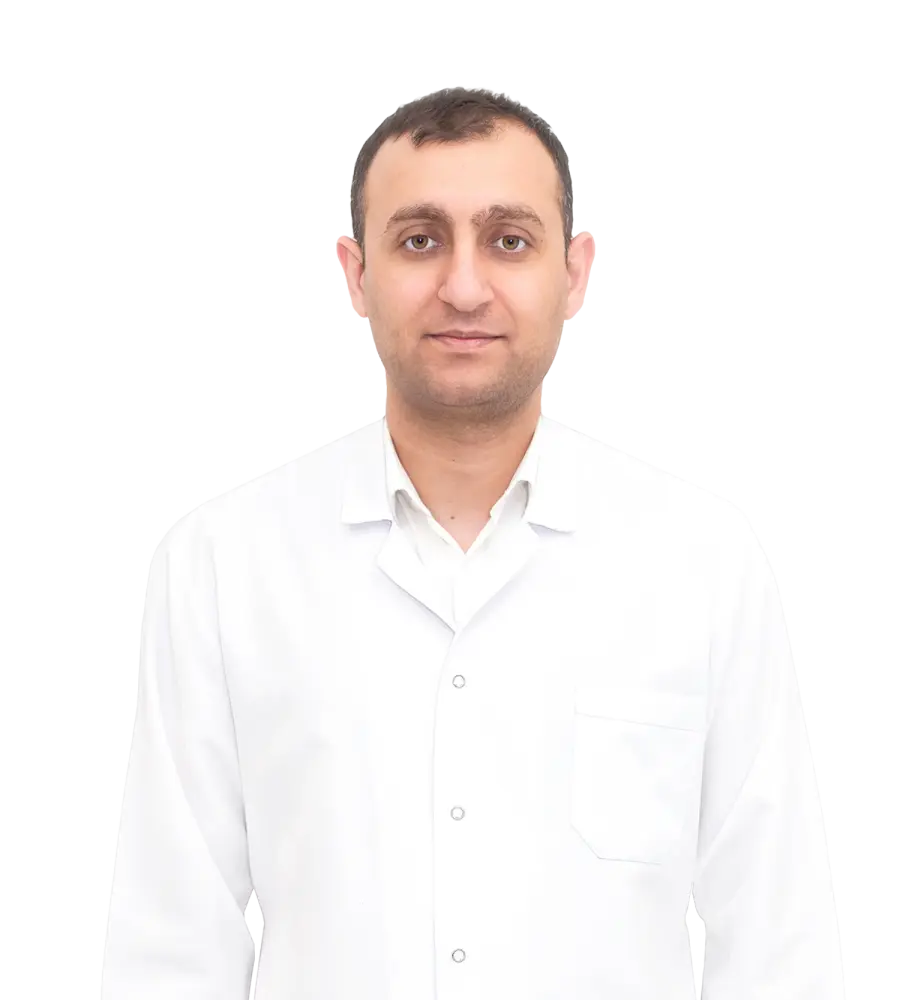Surgical treatment of urethral polyps in Kharkiv
Urethral polyps are benign neoplasms that occur on the mucous membrane of urethra. They are formed due to abnormal growth of urethral tissue. Polyps are round, soft to the touch, reddish formations with a smooth surface. Neoplasms grow directly on the mucous membrane of urethra or are attached to its walls by means of a leg. In women, polyps usually occur along the entire urethra or closer to its external opening, and in men - in the area of the entrance of canal into the prostate.
Polyps grow rapidly, and an increase in their size leads to painful sensations during urination and impaired outflow of urine due to partial blockage of the urethral lumen. A large neoplasm can completely block urethra and lead to acute urinary retention.
Why do polyps form in urethra?
The main reasons provoking the growth of polyps in urethra include the following:
- inflammatory diseases of the urinary system - bladder (cystitis), urethra (urethritis), etc.;
- genitourinary infections (chlamydia, ureaplasmosis, etc.);
- infection with genital herpes, human papillomavirus (HPV);
- frequent trauma to the mucous tissue of urethra;
- hormonal disorders (mainly caused by the onset of menopause);
- leukoplakia of urinary bladder - a precancerous condition characterized by the replacement of mucous membrane of the organ with sections of keratinized tissue;
- urethral diverticulum - bag-like protrusion of the urethral wall;
- hereditary predisposition.
Clinical symptoms of urethral polyps
Symptoms of urethral polyps appear some time after the onset of the disease development. As long as the neoplasms are small, a person usually does not feel discomfort. The main clinical symptoms of urethral polyps include the following:
- frequent, painful urination;
- admixture of blood in the urine;
- burning sensation in urethra;
- pain in bladder;
- sensation of a foreign body in urethra;
- changing direction or splashing the urine stream;
- constant feeling of bladder fullness;
- difficulty urinating;
- pain during intercourse (especially in women).
If you find symptoms of urethral polyps in yourself, you need to immediately make an appointment with urologist. The sooner the diagnostics is carried out and the treatment is started, the better, since the neoplasms grow rapidly and lead to malfunction of the urinary system. Polyps are easily damaged and can cause severe bleeding, even developing blood deficiency (anemia). In addition, urethral polyps are prone to degeneration into a malignant tumor, which poses a serious threat not only to health, but also to life.
Attempts to self-treat urethral polyps with folk remedies will only aggravate the problem, since they cannot affect the disappearance of polyp or stop its growth. The only effective treatment for urethral polyps is surgery for their removal.
Treatment of polyps with cystourethroscopy
Treatment of urethral polyps begins with a consultation by urologist, since the symptoms of pathology are similar to the manifestations of other diseases of genitourinary sphere. The doctor will listen to the patient’s complaints, study the history of illness, conduct examination and refer to additional tests. To diagnose a polyp in the urethra, urologists refer to the following:
- smear from the urethra for microflora;
- PCR test (to identify the type of causative agent of the inflammatory process in urethra);
- smear for sexually transmitted infections;
- ultrasound of bladder and urethra;
- cystoscopy - a method of examining the mucous membrane of bladder.
The procedure is prescribed if you suspect the presence of polyps in the bladder. Cystoscopy provides for the introduction of cystoscope into the bladder through urethra - a thin long probe equipped with a mini-video camera and a light source. The real time image is displayed on the monitor. During a cystoscopic diagnosis of polyps, the doctor may also take a piece of tissue from the tumor for biopsy (analysis for the presence of cancer cells). Cystourethroscopy is the same procedure, but unlike cystoscopy, it involves examining not only the bladder, but also the urethra.
After confirming the diagnosis, the urethral polyps are removed. They are cut by electrical loop embedded in the cystoscope. Under the influence of high temperature and current, the blood vessels in the mucous membrane of urethra are instantly “sealed”, so the risk of bleeding is reduced to zero.
The procedure for the removal of urethral polyps in women and men takes place under local anesthesia or intravenous sedation and lasts approximately 30 minutes. Do not eat or drink two hours before the therapeutic cystourethroscopy. After the procedure, the patient is in the ward for some time (1-3 hours), and then he/she is free to leave the medical center.
The recovery period after removal of the urethral polyp lasts about two weeks - this is how long it takes for the mucous membrane of urethra to heal completely. For two weeks after surgery, the patient is advised to avoid sexual contact and hypothermia.
To make an appointment for a consultation by urological surgeon regarding the treatment of urethral polyps in Kharkiv, make appointment at the medical center “ON Clinic Kharkiv”. Call the specified phone number or leave a request on the website.
| Название | Цена |
| 6000 uah | |
| 8500 uah | |
| 5000 uah | |
| 600 uah | |
| 850 uah | |
| 5500 uah | |
| 4500 uah | |
| 280 uah | |
| 2075 uah | |
| Consultation of an oncogynecologist | 700 uah |
| Consultation with a surgeon | 600 uah |
| Consultation with a surgeon-endocrinologist | 525 uah |
| Consultation with an oncosurgeon | 600 uah |
| Consultation with an operating obstetrician-gynecologist | 500 uah |
| Consultation with an operating surgeon | 500 uah |
| Consultation with an operating urologist | 550 uah |
| Endocrinology surgeon consultation | 600 uah |
| Home call to a surgeon | 1800 uah |
| ONLINE Consultation with a gynecological oncologist | 700 uah |
| ONLINE Consultation with a surgeon | 600 uah |
| ONLINE Consultation with an oncosurgeon | 600 uah |
| ONLINE Consultation with an surgeon-endocrinologist | 525 uah |
| ONLINE Thoracic Surgeon Consultation | 600 uah |
| Thoracic surgeon consultation | 500 uah |
















